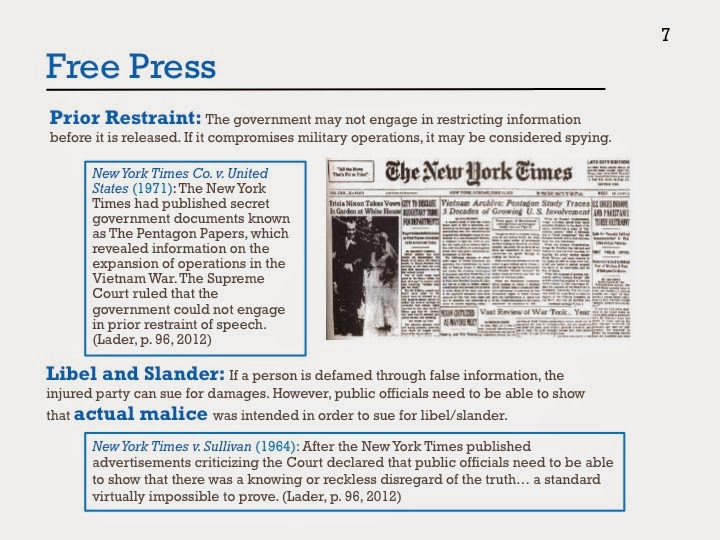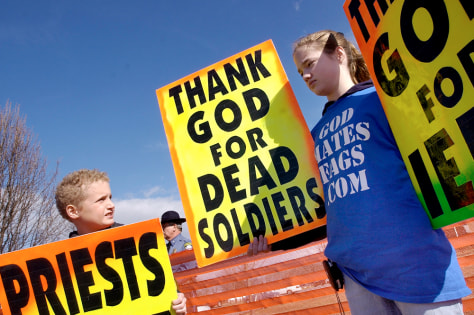Edward
Snowden is an international subject of much controversy. Snowden worked as an
NSA contractor for Dell and later on, Booz Allen. Snowden traveled to Hong Kong
and gave information he acquired about the NSA’s domestic and international
surveillance programs to two reporters to leak. Edward Snowden later traveled
to Russia, where he did not have a visa. The United States had charged Snowden
of theft and espionage, and also canceled his passport, leaving Snowden in
airport limbo for 39 days before Russia granted him asylum (Cole, 2014, 21).
Snowden revealed that the NSA had a massive metadata collection program of
email and phone records from Verizon customers (Cole, 2014, 16). The leaks also
reveal that the NSA in a program called PRISM and can gather information such
as search history and emails from companies including Facebook and Google (Cole,
2014, 17). Snowden also revealed that the US as part of an intelligence
alliance called the Five Eyes has been spying on the other countries in the
alliance and sharing information (King, 2014, 1). The issues that Snowden have brought to
question revolve around mass surveillance, government secrecy, and the balance
between national security and personal privacy. The Supreme Court ruled in a
unanimous decision on June 25, 2014 that phone searches of criminal suspects
require a warrant. This ruling goes with the Fourth Amendment of the
Constitution, which offers protection against “unreasonable search and
seizure”. (Mears, 2014, 23)
Revelation
|
Details
|
Source
|
Secret court orders
|
Secret court orders allow the NSA
to access customer phone records from all the telephone companies
|
(Bicchierrai, 2014, 4)
|
PRISM
|
The NSA does not have direct access to companies’ user
information, but it can force them to comply and hand over information
|
(Bicchierrai, 2014, 9)
|
NSA spies on foreign countries or
foreign leaders
|
NSA has spied on German chancellor
Angela Merkel and Argentinian President Dilma Roussef
|
(Bicchierrai, 2014, 15)
|
XKeyScore
|
XKeyScore is a program that the NSA uses to spy on
“nearly everything a user does on the Internet”
|
(Bicchierrai, 2014, 16)
|
NSA efforts to crack encryption
|
NSA has developed a series of
techniques and tricks to circumvent Internet security, undermining Internet
security as a whole
|
(Bicchierrai, 2014, 17)
|
NSA hacking team techniques
revealed
|
The NSA has an elite hacker team codenamed “Tailored
Access Operations’ (TAO). The team infects computers when all other
operations fail.
|
(Bicchierrai, 2014, 21)
|
NSA can hack into Google and Yahoo
data centers
|
Self-explanatory.
Tech companies are enraged.
|
(Bicchierrai, 2014, 24)
|
NSA collects phone information
|
NSA “collects it all”, intercepting 200 million text
messages every day in a program called Dishfire
|
(Bicchierrai, 2014, 27)
|
NSA intercepts phone calls
|
NSA intercepts all the phone calls
in Afghanistan and the Bahamas, along with all the phone metadata in Mexico,
Kenya, and the Philippines
|
(Bicchierrai, 2014, 30)
|
Bicchierrai, Lorenzo F. "Edward Snowden: The 10 Most Important Revelations From His Leaks." Mashable. Mashable, 5 June 2014. Web. 06 Oct. 2014. <http://mashable.com/2014/06/05/edward-snowden-revelations/>.
Cole, Mathew. "Edward Snowden: A Timeline - NBC News." NBC News.
NBC, n.d. Web. 05 Oct. 2014.
<http://www.nbcnews.com/feature/edward-snowden-interview/edward-snowden-timeline-n114871>.
Mears, Bill. "Supreme Court: Police Need Warrant to
Search Cell Phones." CNN. Cable News Network, 25 June 2014. Web. 07 Oct.
2014.
<http://edition.cnn.com/2014/06/25/justice/supreme-court-cell-phones/>.
King, Eric. "Snowden Spyware Revelations: We Need to
Unmask the Five-eyed Monster." The Guardian. The Guardian, 26 Nov. 2013.
Web. 7 Oct. 2014.
<http%3A%2F%2Fwww.theguardian.com%2Fcommentisfree%2F2013%2Fnov%2F26%2Fsnowden-spyware-five-eyed-monster-50000-networks-five-eyes-privacy>.
Raphael, Daniel. "Why Edward Snowden Is a Hero."
The Huffington Post. TheHuffingtonPost.com, 07 Nov. 2013. Web. 06 Oct. 2014.
<http://www.huffingtonpost.com/daniel-raphael/why-edward-snowden-is-a-h_b_4227605.html>.
"GAP Statement on Edward Snowden and NSA
Domestic Surveillance."GAP. Government Accountability Project, 3
Jan. 2014. Web. 07 Oct. 2014.
<http://whistleblower.org/press/gap-statement-edward-snowden-and-nsa-domestic-surveillance>.
Cassidy, John. "Why
Edward Snowden Is a Hero - The New Yorker." The New Yorker.
The New Yorker, 10 June 2013. Web. 06 Oct. 2014.
<http://www.newyorker.com/news/john-cassidy/why-edward-snowden-is-a-hero>.
l
Snowden didn’t jeopardize national security: “Snowden
spent months meticulously studying every document."
n
Snowden planned the information carefully to
not actually release information that would reveal too much.
n
The leak mainly says that the government seized
phone logs without warrants and that the NSA tracks user data from large sites.
l
The program is illegal and serves no purpose
other than benefit military contractors since NSA is run by the military.
l
The
program violates the First Amendment, which gives people free speech.
l
Snowden uncovered questionable activities that the
government had hidden from the public.
n
Snowden revealed information that is reasonably
illegal and abusive.
n
US District Judge Richard Leon says the bulk
telephony metadata program is “likely unconstitutional”.
n
The NSA has the capacity to access vast amounts
of user data from Internet companies such as Facebook, Google, Yahoo,
Microsoft, and Skype… around the world.
n
Snowden’s actions have rippled (positively) across
the world: Government and corporate reforms, Congress bills, lawsuits, etc.
l
Pervasive surveillance does not meet the
standard for classified information.
n
Documents cannot be classified to cover illegal
or embarrassing government conduct.
n
It can only be so if the country’s population
includes most of its enemies
l
There is a clear history of reprisal against NSA
whistleblowers.
n
Snowden is criticized for not using the internal
channels that have repeatedly failed to address the issues.
n
Previous NSA whistleblowers Tom Drake, William
Binney, and J. Kirk Wiebe have been subject to government reprisal including
armed FBI raids and had their careers ended
l
Whistleblowing is becoming a criminal act.
n
The government targets those who reveal gross
waste, illegality, or fraud instead of those who actually perform misdemeanors.
l
Not one person of the NSA has been charged for
spying on the people, nor has any government official been penalized for lying
to the public or the Congress.
n
Based on Snowden’s revelations, two NSA
officials have lied in open court about the NSA’s capabilities
l
In a surveillance state, the enemy is the whistleblower.
n
Secrecy, retaliation, and intimidation undermine
constitutional rights and weaken democratic processes more so than the acts of terror
that they purport to protect the citizens from.
Carafano, James. "Defining Edward Snowden." Daily
Signal. The Heritage Foundation, n.d. Web. 07 Oct. 2014.
<http://dailysignal.com/2014/01/17/defining-edward-snowden/>.
Toobin, Jeffrey. "Edward Snowden Is No Hero - The New
Yorker." The New Yorker. The New Yorker, 10 June 2013. Web. 07 Oct. 2014.
<http://www.newyorker.com/news/daily-comment/edward-snowden-is-no-hero>.
Kirchick, James. "Edward Snowden, traitor." NY
Daily News. NY Daily News, 1 June 2014. Web. 07 Oct. 2014. <http://nydailynews.com/opinion/edward-snowden-traitor-article-1.1811878>.
l
Snowden says complete transparency means
freedom, which is naïve
n
Free societies recognize that the government can
keep legitimate secrets
n
Democracies operate under the concept of
“ordered liberty”
l
Snowden is neither “freedom fighter or
whistleblower”
n
His leaks mostly reveal no wrongdoing
l
Snowden’s actions are irresponsible
n
Snowden did not have to leak because there were
whistleblower protection laws
n
Snowden betrayed the trust he was given to
safeguard the nation’s secrets
l
Snowden’s decision is questionable
l
The NSA obviously was supposed to intercept
electronic communications
n
Snowden leaked the very court decision that
authorized the programs
n
Snowden was exposing things that didn’t meet his
own standards of propriety
l
Snowden was dumping information
n
The Post
decided to only publish four of the forty-one slides that Snowden provided,
which shows that it exercised more judgment than Snowden did
l
Snowden ran to Hong Kong, which really belongs
to China
n
China as an intelligence adversary of the US and
may very well take in Snowden’s information on the US spy networks
l
Snowden is in Russia, where he likely could have
given Russia national secrets
l
Snowden could disclose the NSA’s domestic
surveillance, but exposing America’s foreign intelligence operations makes
him become a traitor, not a whistleblower
I think that Snowden is more of a
hero than a traitor. Snowden revealed that the government had partaken in activities of examining phone logs without getting warrants
beforehand. In addition, the court order which had authorized the operation had been kept secret. A law is barely a law if people don't know about it. In this case, the court order was kept secret to hide the fact that the government was spying on people's phones everyday and avoid public criticism. Thus, I believe that this knowledge should have been made public.
Regarding the international espionage, I think the US is
untrustworthy for spying on its allies, in cases such as targeting Angela Merkel and Dilma Roussef. I think its
use of information from companies like Facebook and Microsoft is abusive, as the companies are forced to hand over information at the government's request. The NSA hacking programs are bad for internet security as a whole and infringe upon protecting liberty. I
think however that it is up to the government to do what it thinks is necessary in
terms of spying. Snowden may actually have revealed too much information regarding the NSA's hacking techniques, such as the TAO.
I think Snowden was right to run away from the United States, since
he would not have much of a life to live in the US after the leak, though it
was likely a bad idea to go to Russia. Snowden likely would not willingly give
information to the Russians. Russia likewise would want to treat Snowden
hospitably to try and look like the bigger man on the issue of espionage.
Snowden’s
actions reveal that the US is corrupt at the core. When other whistleblowers
brought up issues internally, the government retaliated viciously, raiding
their houses and ruining their careers. That was the case with Tom Drake, William Binney, and J. Kirk Wiebe. In a free society, the government
should do more to protect whistleblowers instead of criminalizing them for
revealing secrets.






























